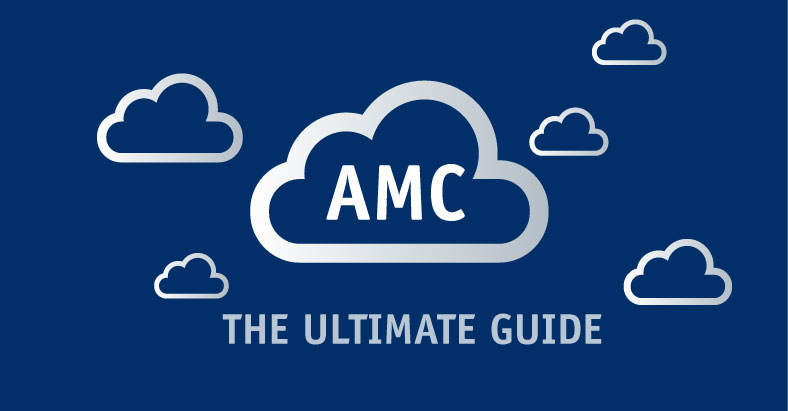What is the Amazon Marketing Cloud?
Amazon Marketing Cloud (AMC) is a comprehensive marketing platform offered by Amazon Web Services (AWS). It is designed to provide businesses with an all-in-one marketing solution that can help them create, manage, and measure their marketing campaigns across multiple channels. The platform is built on Amazon’s robust infrastructure, which includes a vast amount of customer data, advanced analytics tools, and machine learning algorithms.
AMC offers a range of services, including advertising, analytics, personalization, and messaging. These services are designed to help businesses engage with their customers in a more meaningful way and achieve their marketing objectives.
One of the key benefits of AMC is its advertising capabilities. The platform allows businesses to run advertising campaigns across Amazon’s properties, such as Amazon.com and Amazon Prime, as well as on third-party sites and apps through the Amazon Advertising Network. AMC offers a variety of ad formats, including display, video, and search ads, which can be targeted to specific audiences based on factors such as their demographics, interests, and browsing behavior.
Another significant feature of AMC is its analytics capabilities. The platform provides businesses with powerful analytics tools that allow them to track the performance of their campaigns, measure their return on investment (ROI), and gain insights into their audience’s behavior and preferences. AMC’s analytics tools use machine learning algorithms to analyze vast amounts of data and provide actionable insights that can help businesses optimize their campaigns and improve their marketing efforts.
AMC also offers personalization capabilities, which enable businesses to deliver personalized content and recommendations to their customers based on their browsing and purchase history. The platform uses machine learning algorithms to analyze customer data and generate personalized recommendations that are tailored to each customer’s preferences and needs.
Here are some of the benefits of the Amazon Marketing Cloud and how they can help your business:
- Comprehensive Advertising Platform: The Amazon Marketing Cloud is a one-stop-shop for all your digital advertising needs. It offers a range of services including display ads, video ads, mobile ads, and search ads. This means you can manage all your campaigns from a single platform, saving time and effort.
- Targeted Advertising: The Amazon Marketing Cloud offers advanced targeting options that allow you to reach your desired audience more effectively. You can target your ads based on demographics, interests, behaviors, and even past purchase history.
- Better ROI: The Amazon Marketing Cloud offers tools to help you measure and optimize the performance of your campaigns. You can track key metrics such as click-through rates, conversion rates, and return on ad spend (ROAS) to ensure that you are getting the most out of your ad spend.
- Personalization: The Amazon Marketing Cloud allows you to create personalized ads for your audience. This can help you increase engagement and conversion rates by delivering the right message to the right person at the right time.
- Integration with Amazon: The Amazon Marketing Cloud is integrated with Amazon’s e-commerce platform, which allows you to advertise your products directly on Amazon.com. This can help you increase visibility and sales for your products.
- Scalability: The Amazon Marketing Cloud is built on Amazon’s robust infrastructure, which means it can handle large volumes of data and traffic. This makes it a scalable solution for businesses of all sizes.
How is data collected by the AMC?
Upon clicking your advertisement, the cloud employs a customer’s unique identification number to automatically track their activities. The system then identifies which ASINs were purchased together and the duration between viewing an advertisement and conversion. This information is beneficial for organizing your marketing strategy.
The Amazon Marketing Cloud captures several actions, including clicks, page navigation, add-to-cart, and check-out activities. All the data collected is anonymous and presented as a percentage. Displaying the data in this manner helps to comprehend overall performance while safeguarding consumer privacy.
The Amazon Marketing Cloud operates on cloud instances that store data from one advertiser at a time. Each instance stores data for the previous 28 days, and only this data can be accessed through queries. The demand-side platform may have a different protocol, as several IDs can represent a single advertiser. In these cases, the instance stores data from the past 12.5 months. It is not possible to create instances independently, and it may take 3-5 days to produce them, so it is worth noting if you find yourself in this situation.
Here’s what you need to know about the eligibility requirements.
First and foremost, the Amazon Marketing Cloud is exclusively available to agencies and advertisers who are actively utilizing the Amazon Advertising DSP. To be considered, you must have planned or executed a campaign within the previous 28 days. Additionally, you must have an executed Amazon DSP Master Service Agreement.
To access the AMC self-service platform, you’ll need team members who are proficient in writing SQL programming language. This skill is essential to make the most of the platform’s features and capabilities.
If you’re interested in leveraging the Amazon Marketing Cloud API, it’s important to note that you’ll need an Amazon Web Services account. Having access to AWS will enable you to leverage the power of the cloud to scale your advertising efforts and unlock new possibilities for your campaigns.
Let’s talk about the safety and privacy features of the Amazon Marketing Cloud.
The AMC is designed with a strong focus on privacy. It leverages a cloud-based cleanroom solution to provide advertisers with aggregated and anonymized user data, without compromising on individual privacy.
All inputs are pseudonymized, meaning any personally identifiable information is replaced with a unique identifier. Similarly, all outputs are aggregated and anonymous, ensuring that no individual can be identified. Moreover, any data uploaded to the cloud stays within your account and cannot be exported or accessed by Amazon.
Additionally, each aggregation requires data from at least 100 unique users to safeguard their privacy. Despite this, advertisers can still derive meaningful insights and reports that can help them make informed decisions while preserving the anonymity of their customers.

